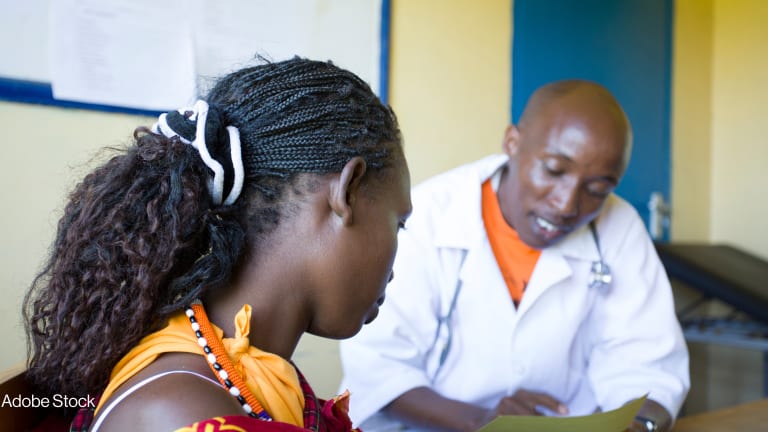On Sept. 23, Devex co-hosted a virtual event with AstraZeneca in which participants discussed how health partnerships can be made to work long-term and how COVID-19 has altered the approach to partnering as countries push for universal health coverage by 2030.
In an initial discussion, Lia Tadesse, minister of health for Ethiopia, spoke of how the pandemic has highlighted just how much everything is interconnected, with the need for governments and the health community to widen their horizons on partnerships.
“It … will change how we partner for the better, I believe,” she said. “This has also showed us a possibility of how we can really be more aggressive in the other priorities in health that we have.”
Ashling Mulvaney, global head of access to health care, sustainability at AstraZeneca, said the current crisis has led to more flexible and agile conversations while also prompting a focus on nontraditional actors in the health space who can bring fresh ideas to the table.
The Healthy Heart Africa program that Mulvaney leads seeks to ensure engagement with multiple partners for sustainable health care, including governments, NGOs, and those on the ground, she said. If that can be done effectively and comprehensively for one disease, she noted that frameworks can then be applied to others. “There’s joint learnings which then can be transferred to other disease areas,” she said.
In a wider panel discussion, Siddharth Chatterjee, United Nations resident coordinator in Kenya, said that if the world does not make a concerted push toward UHC, then “we are sitting ducks when the next pandemic strikes.”
“There’s nothing like a crisis to get people to work together.”
— Peter Sands, executive director, The Global Fund to Fight Aids, Tuberculosis and MalariaHe said public-private partnerships are key to this drive, having been shown to produce positive results in health when used in Kenya. “In my view, public-private partnerships will be the new normal for the renaissance of multilateralism, where governments, the private sector, the U.N., the public sector [are] all coming together and looking at this with a laser-sharp vision,” Chatterjee said.
Peter Sands, executive director of The Global Fund to Fight Aids, Tuberculosis and Malaria, said meanwhile that COVID-19 has been an “extraordinary catalyst" for more productive partnerships.
These are challenging, with each party having its own priorities and ways of doing things — but a huge amount of collaboration has been required from a wide variety of actors to find new ways to do things such as keeping malaria initiatives going during the crisis, he said.
Sands also pointed to the Access to COVID-19 Tools Accelerator, a global collaboration to accelerate development, production, and access for tests, treatments, and vaccines, saying it has seen an “unprecedented intensity” of cooperation during his time in global health.
“There’s nothing like a crisis to get people to work together,” he said.
To learn more, watch the event and join the conversation online using the hashtag #UNGA75.








